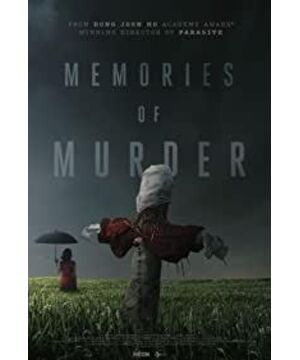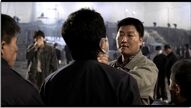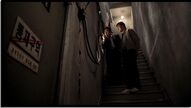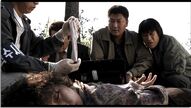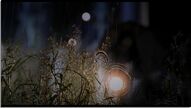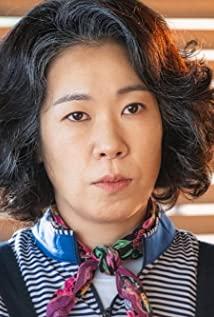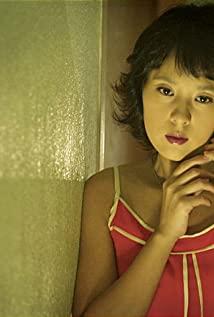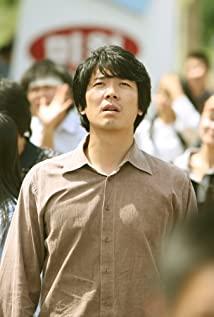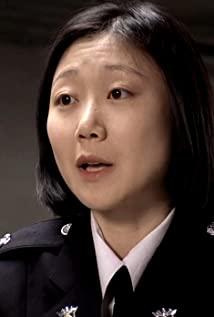This movie, shot in 2003, is considered a peak of Korean movies in my opinion. The first time I saw this film, I felt the same as the first time I saw Jiang Wen's "Devils Are Coming", that is, the director and the screenwriter worked hard on the structure, reflecting the good screenwriter editing skills, making the story simple but colorful. of sophistication.
The story of this movie is actually not very good. The murder cases in the world are not worth watching. If you look at it with a curious mind, people may get a perverted comfort in the murder case, but this movie is not actually about Murder cases, if you only talk about murder, then the movie will enter the end of the stream. In my opinion, this film is essentially about choices, about human nature, rules, and social progress.
In a perverted murder case, the director can tell this ordinary and simple story in an excellent way without being conventional, and it makes the whole film very grounded, and the realism is also illusory (unreal is what makes humans feel good. One way to deal with it) This is very rare. When shooting a film about murder, it is inevitable to be curious and make a mystery, but what you remember after watching this film is not murder, but how the protagonists make choices in such an event. The characters in the film have solid performances, and they are outstanding from the main to the supporting role, which adds a lot to the film.
The story of the film "Memories of Murder" has a relatively large time span, from the 1980s to the 2000s, but the spatial span is not large. It is concentrated in a small town, a small town with Korean characteristics. The basic structure of the town is: dwellings, mines, and paddy fields. Industry and agriculture coexist here, which also finds an impeccable foothold for the actions of the protagonists in the story, and all their behaviors exist because of this coexistence.
Korea did not develop for many years. Its country has undergone dramatic changes, from colonial times to military dictatorships to open democracies. They have had civil wars and clashes of tradition and modernity. This complex and changeable imprint of the times is reflected in each specific character. This complexity creates such a story.
The beginning of the story begins with a golden paddy field. The color is beautiful, and the photographer's perspective is also very good. The picture is warm, but the next thing is not like that. The female body was found in the paddy field and was tortured to death. This strong contrast is the manifestation of the conflict of the times. Small town police officer Park has no culture and no detective skills. Everything is based on guesswork. He defines it as intuition. In fact, he is best at extorting confessions by torture, which is something that happens in almost any country without the rule of law.
He had no choice but to engage in crowd tactics and investigated almost all possible men in the town. Created a file, but no clue. A second rape and murder case was uncovered next to make the whole case even more difficult. Xu, who graduated from Police College, volunteered to come to this town from Seoul to assist in the investigation. Regarding Xu's appearance, the director and screenwriter deliberately set it up to show Xu's invincible force. He represents the police style of the new era and is good at using his mind. This has created a conflict between characters, a conflict between tradition and modernity, and the story is more interesting.
After being reminded by his lover, Officer Park felt that the fool Guanghao was the murderer, and used methods such as murder to extract a confession to deceive Guanghao's confession, and even forged evidence. All this was seen by the police officer Xu. Later, the development of things greatly exceeded his expectations. The exposure of the media gave Guanghao a new life and the police station changed the chief. At this time, the conflict between Officer Park and Officer Xu also reached a certain level, and even a physical conflict broke out. The current situation of Korean society at that time represented the conflict between advanced student groups and the military and police, and the outbreak of the "Gwangju Incident", which the director also mentioned in his work.
Officer Xu reasoned that there was a third body and found her. The arrangement of this plot made Officer Park realize the importance of the mind for the first time. In the next scene, he starts to change, and also tries to use his head to solve the case, of course, full of jokes, but his reasoning is not bad. After catching a suspect, he still wanted to give in, causing even more serious damage to the police department.
After analysis, they finally locked the real suspect, but there was no evidence. The only fine spot left was not the suspect's. The suspect even committed another crime while on bail, killing a female middle school student. This move angered Officer Xu. He changed from being a rationalist to an emotional faction. He wanted to kill the criminal suspect, but was stopped by Officer Park. At this time, the two characters officially changed their roles. Modern is beginning to merge. The legal system began to become the requirement of all people. This transformation symbolized the transformation of Korean society and was a sign of the times.
In the end, due to insufficient evidence, the suspect could only be released. The story ends in 2003, when Officer Park has resigned for many years and has a happy family of his own. When passing through the town once, he returned to the rice field where the first crime was committed, which aroused many memories for him. Like the beginning, a primary school student is also set to talk to a police officer (a silly little boy is set at the beginning), the little girl's words caught Park's attention, and he seemed to vaguely feel that the prisoner would emerge from the water, a case that had been hidden for many years. Will be dug up again, and the little girl just said: That person is an ordinary person, looks like an ordinary person. There aren't any valuable clues.
The film ends here, the camera rises, and the yellow rice fields are blown away by the wind.
In addition to echoing the era, the whole film also clearly explains the character settings, the story echoes before and after, and even every prop is arranged. It can be said that the whole film is smooth, there is no abandoned shot, and even the words of each character are echoed through the camera. This is a very mature popular film and television work. Personally, I feel that director Bong Joon-ho can be promoted to one of the top directors in Asia with this film, because he has found the knack of popular movies.
(After watching in the past, keep a note, look at it in the future, compare and experience)
View more about Memories of Murder reviews


